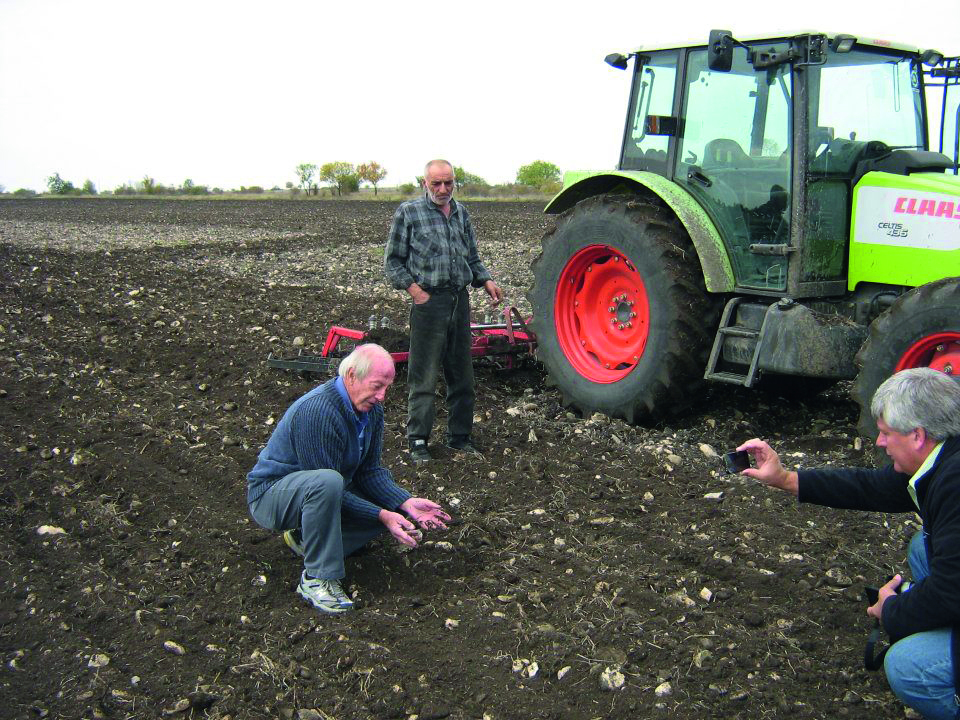Every day, 69-year-old Piet Kemp ventures out onto his farm, where the laborers speak neither English nor Afrikaans, at a time when many people are retiring. He is starting afresh 13,000 kilometers away from home, chasing the impossible dream.
In 2010, Georgia’s government asked the Transvaal Agricultural Union of South Africa (TAU SA) to help revive its once mighty farming industry. South African farmers would take their years of experience in cattle and crop farming to Georgia.
TAU SA cite violent attacks on many farmers in South Africa as one of the reasons to take up the opportunity to farm on freehold land in a country that wants its farms to work again.

Kemp was one of those farmers who heeded the call. Before leaving for Georgia, Kemp was a corn and cattle farmer near Ermelo in South Africa’s north-eastern province, Mpumalanga. He has been living in Georgia with his family since 2011, renting around 700 hectares of land, cultivating corn and wheat.
“It’s a difficult land to farm in. Sometimes, when the tractor is broken you can’t get things from the shop. We wait a long time for parts,” he says.
As for speaking Georgian fluently, he says his wife, Martie, is better at it, but a translator often helps them communicate with his 26 laborers.
It’s been nearly two years since skilled South African farmers, such as Kemp, boarded a plane for the former Soviet republic of Georgia on the promise of cheap freehold land. This country is as big as the Free State province in South Africa.
But not all Georgians welcomed them with open arms. Many said the authorities should be supporting them instead of immigrants. Two months ago, the Georgian government passed a moratorium on selling land to foreigners until 2014.
Bennie van Zyl, general manager of TAU SA, says that Georgia is an attractive country for South African farmers because of its safety and efficiency. His organization takes around 160 farmers on tour every year in the hope of selling the dream.
“Our intention is not to take all the farmers to Georgia, 90% [on the tour] still consider the offer, while around 10% say no,” he says.
Back home, reforms by the country’s ruling African National Congress to transfer white-owned farms to black people, following the fall of apartheid, is another reason that drove white farmers to leave. When apartheid ended in 1994, nearly all the commercial farms belonged to white people. This inequity of land ownership dates back to the Natives’ Land Act of 1913.
Many farmers grew angry when the government started to redistribute farmland. Kemp says it was one of the reasons he felt he had to leave.
According to Reuters, the number of white farmers in South Africa has decreased by a third to 40,000 in the past 15 years.
But Georgia is not the only country where South African farmers are sought after. Van Zyl says there’s been demand for farmers by other countries on the continent. Around 800 South African farmers are farming in, or extended their farms into Mozambique. Other countries showing a keen interest in farmers from South Africa and Zimbabwe are Congo-Brazzaville and Zambia.
This means that farmers such as Kemp are foot soldiers in the field trying to justify their radical decision to leave home in an attempt to find greener pastures in the autumn of
life.
